Women not getting drink-drive message - Police Federation
- Published
- comments
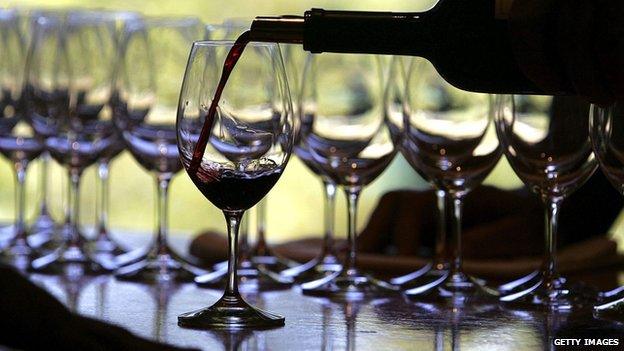
More should be done to discourage women from driving while drunk, the Police Federation says.
It says female drink-driving levels are not falling quickly enough as warnings are not "getting through".
The body also wants the legal limit in England and Wales to be reduced from 80 to 50 milligrams of alcohol per 100 millilitres of blood - in line with changes introduced in Scotland in 2014.
The Department for Transport said tackling drink-driving was a priority.
Campaigners say cutting the drink-drive limit would reduce the number of deaths and serious injuries on roads.
England, Wales and Northern Ireland currently have the joint highest drink-drive limits in Europe. However, Northern Ireland has already said it is considering reducing the limit.
Changed habits
Drink-drive casualties and accidents have been falling steadily since 1979, when detailed reporting began, according to data from the Department for Transport, external.
However, the Police Federation - which represents rank and file officers in England and Wales - said that was largely because male drivers had changed their drinking habits.
It said more men than women were still caught drink-driving, but female convictions were not decreasing at the same rate.
Ministry of Justice statistics show that the number of women found guilty of driving under the influence of alcohol or drugs in England and Wales rose from 9,077 in 2011 to 9,586 in 2012.
The number of men convicted in England and Wales over the same offence dropped from 46,204 to 45,471 over the same period.
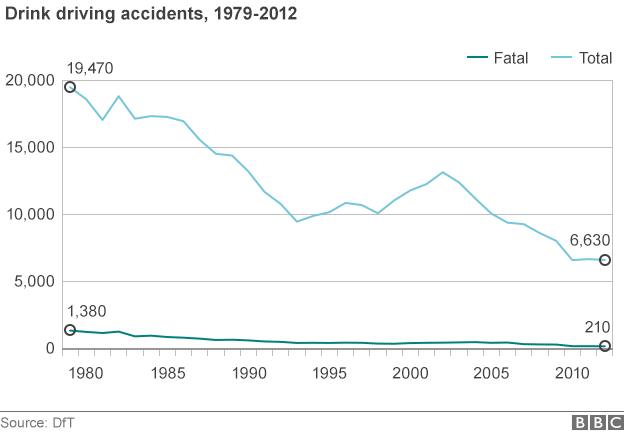
A study by Social Research Associates published last year, external suggested 17% of all drink-driving convictions in 2012 involved women - up from 9% in 1998.
Victoria Martin, a Police Federation representative, told BBC Radio 4's Today programme that figures suggested women's drinking habits "aren't changing".
She said figures from the last 10 years showed the number of men caught drink-driving had halved, while female levels had stayed "about the same".
Public safety messages about driving while drunk were not "getting through to women", she added.
Lucy Rocca, the founder of Soberistas - a social network to help women stop drinking - said women were not being featured in public health campaigns and advertising and, as a result, were not "connecting" with drink-drive warnings.
She said many women were "reticent" to admit they had a problem, adding: "It is women not wanting to admit they are drinking too much and not taking that into consideration when they get behind the wheel."

What is the legal limit elsewhere in Europe?
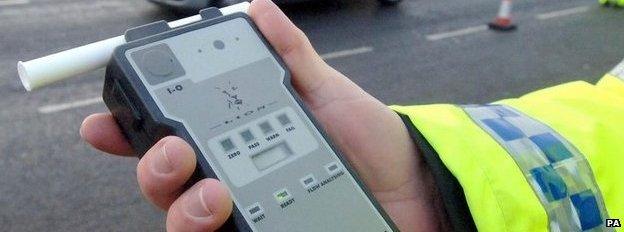
(All figures per 100ml of blood)
Zero - Czech Republic, Hungary, Romania, Slovakia. Commercial and novice drivers in Germany, Lithuania and Slovenia
10mg - Commercial and novice drivers in Austria
20mg - Estonia, Poland, Sweden. Commercial and novice drivers in Greece, Ireland (for learner, novice and professional drivers), Latvia Luxembourg. Bus drivers in France
40mg - Lithuania
50mg - Austria, Belgium, Bulgaria, Croatia, Denmark, Finland, France, Germany, Greece, Ireland, Italy, Latvia, Luxembourg, Netherlands, Portugal, Spain, Scotland
80mg - England, Wales, Northern Ireland, Malta

'Strengthened enforcement'
The amount motorists can drink before being over the limit depends on factors including their gender, age, weight, metabolism, stress levels and whether they have eaten recently, as well as the size and strength of the drink.
Experts estimate a 50mg limit would mean an average man would be limited to just under a pint of beer or a large glass of wine, and women to half a pint of beer or a small glass of wine.
However, a campaign ahead of the change in Scotland warned that "the best advice is none" - meaning people should not drink any alcohol if they intend to drive.
Prosecutions for drink-driving in Scotland have fallen by a third since it adopted the new limit in December, which BBC home affairs correspondent Danny Shaw said suggested motorists were being more careful.
The Department for Transport said it would look at the best ways to improve road safety over the next few years.
A DfT spokesman said: "We have strengthened enforcement by removing the automatic right for drivers who fail a breathalyser test to demand a blood or urine test. This has denied people the chance to sober up while waiting for the test to be taken.
"High risk offenders are now also required to prove they are no longer alcohol-dependent before being allowed to drive."
- Published19 May 2015
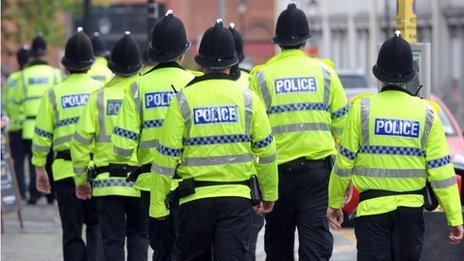
- Published5 December 2014
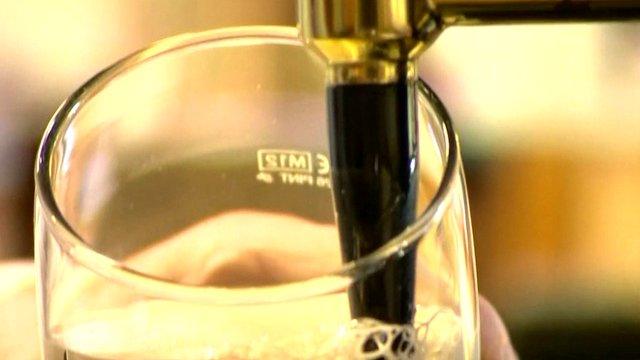
- Published13 April 2015
